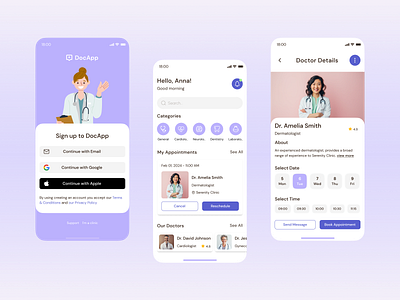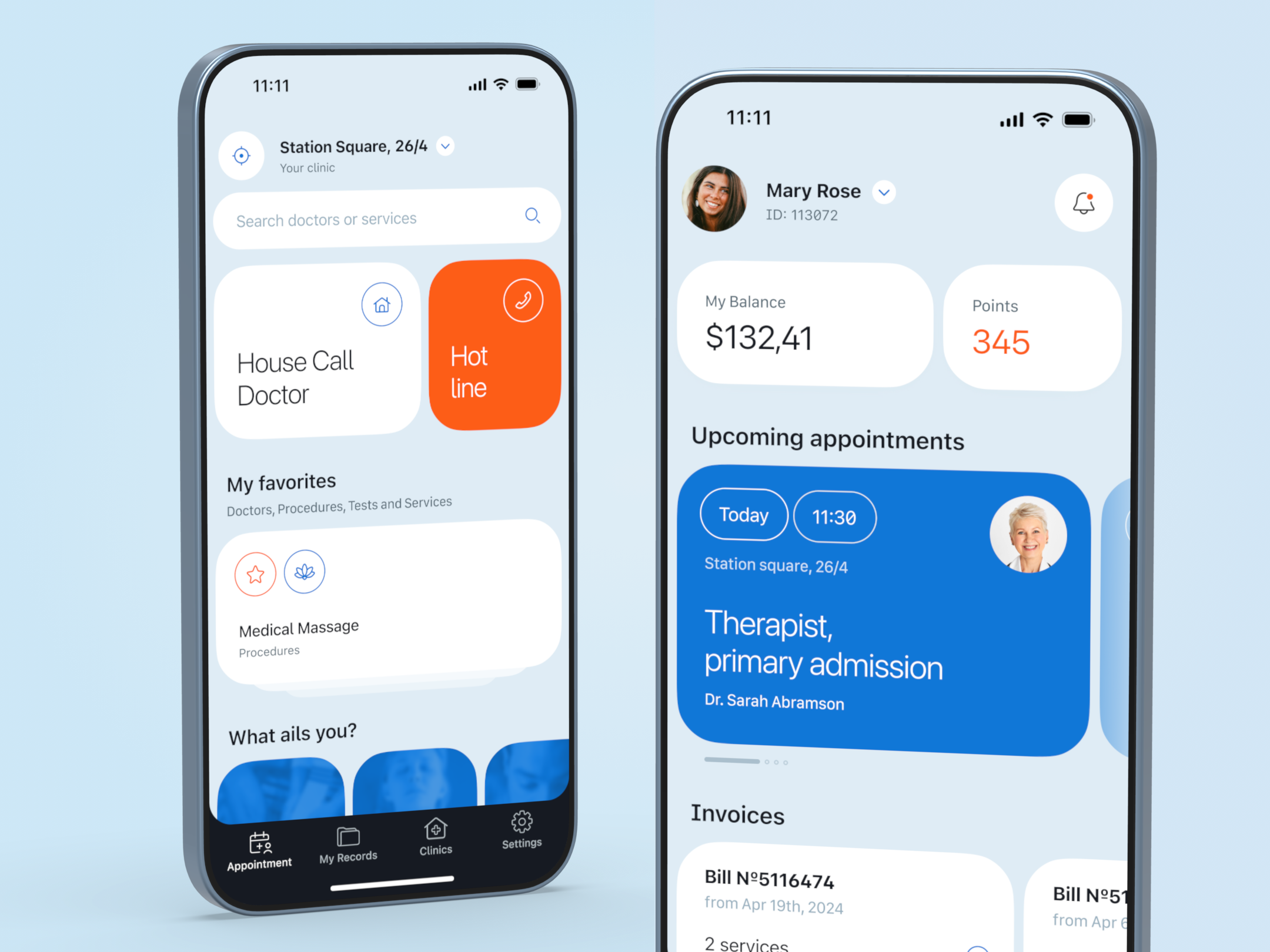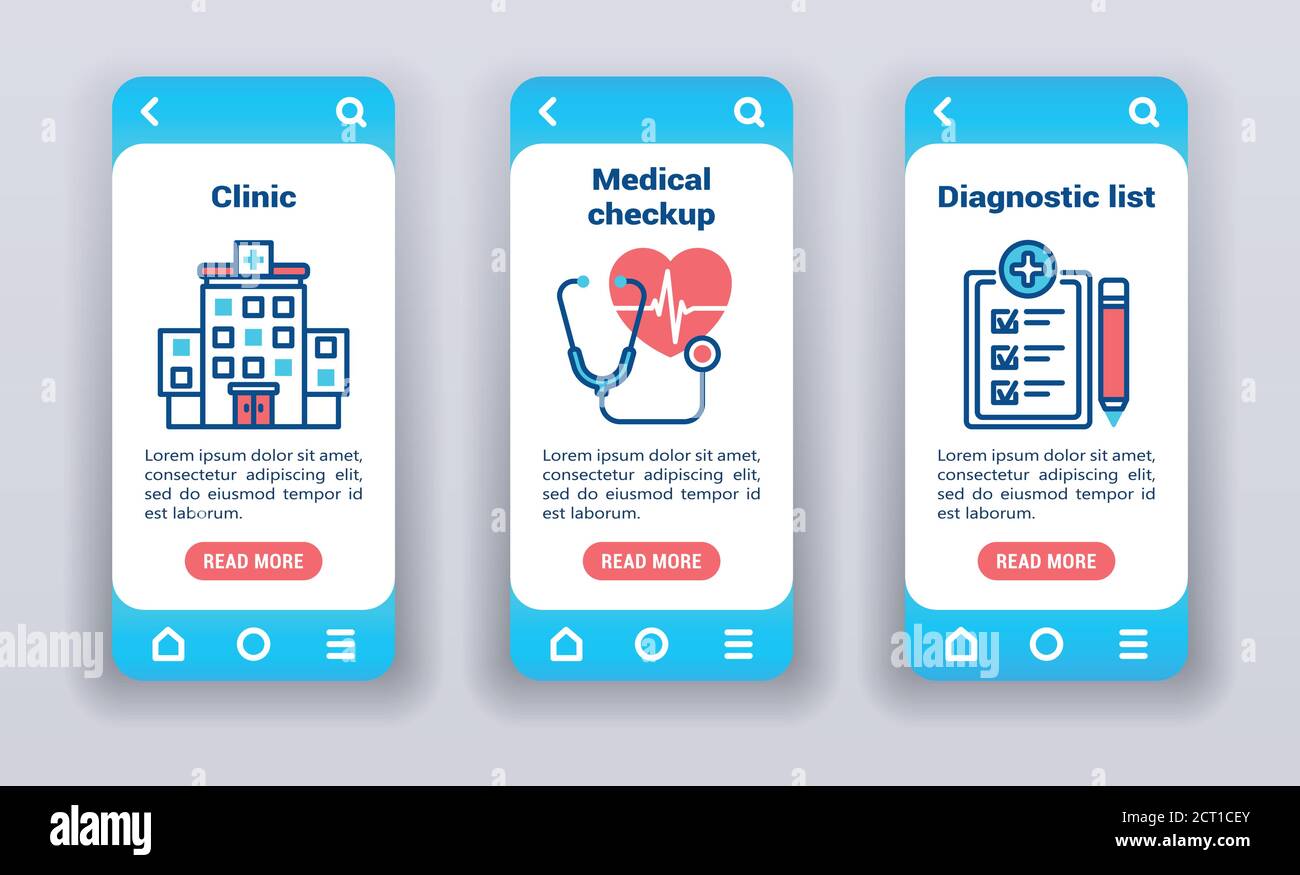The Future of Medical Care: Why Clinics Required a Mobile App Today
As the healthcare landscape proceeds to progress, facilities face placing pressure to adapt to person assumptions for better ease and ease of access. The integration of mobile applications can offer as a vital strategy for enhancing person interaction and improving operations.
Changing Patient Assumptions
As the landscape of healthcare evolves, client assumptions are undertaking a substantial makeover. Today's patients are progressively seeking comfort, access, and individualized care.
In addition, patients are coming to be a lot more notified and empowered, commonly researching therapies and problems on the internet before examinations. This enhanced recognition is coupled with a demand for openness in medical care processes, consisting of expense quotes and treatment alternatives. Therefore, suppliers are urged to adjust by adopting digital tools that enhance the individual experience.
The assumption for efficient and timely communication has never been greater, with numerous people thinking about responsiveness a crucial part of quality treatment. mobile app for clinics. In this progressing landscape, medical care companies have to identify these transforming expectations and take advantage of mobile applications to promote a much more patient-centric approach, making certain that they not only fulfill however go beyond the standards set by today's educated consumers
Enhancing Patient Involvement

Mobile applications promote communication between patients and doctor, making it possible for real-time appointment scheduling, suggestions for medication adherence, and straight messaging features. These performances not only boost comfort however also develop a feeling of accountability amongst individuals. Mobile applications can provide educational material customized to specific needs, aiding individuals better understand their problems and therapy options.
The integration of gamification aspects within medical care apps can likewise motivate clients to involve in healthy and balanced actions, strengthening favorable way of living adjustments. Ultimately, improving person interaction through mobile applications leads to enhanced health and wellness end results, greater client satisfaction, and an extra collaborative healthcare experience.
Streamlining Center Workflow
Streamlining center operations is vital for enhancing process effectiveness and maximizing person treatment. The implementation of mobile applications can significantly decrease administrative concerns, allowing medical care carriers to focus much more on person communications. By automating visit organizing, patient check-ins, and invoicing processes, clinics can reduce wait times and improve overall operational performance.
Mobile applications also promote real-time accessibility to patient documents, enabling medical care experts to make educated decisions rapidly. This immediacy not only boosts the high quality of care but additionally reduces the possibility of mistakes connected with misplaced or dated information. Leveraging mobile innovation supports an extra organized method to handling person follow-ups and therapy plans, making certain that no essential steps are overlooked.
Furthermore, mobile apps can simplify supply administration by supplying clinics with tools to keep track of products and medicines effectively. This permits for timely replenishment and assists stay clear of disruptions in individual treatment because of equip lacks. By incorporating these functionalities right into their everyday operations, clinics can develop an extra efficient and natural setting, inevitably bring about improved client results and contentment. Accepting mobile technology is not just a pattern; it is a needed evolution in the health care landscape.
Improving Interaction Networks
Efficient communication is regularly cited as a cornerstone of quality healthcare shipment. In today's fast-paced clinical atmosphere, mobile applications can substantially boost communication channels in between facilities, patients, and healthcare suppliers. By incorporating mobile apps into their procedures, centers can assist in real-time interactions, making sure that clients get timely information concerning their consultations, examination results, and therapy plans.
Mobile applications also encourage individuals to connect directly with their health care teams through safe messaging functions. This direct line of communication cultivates a feeling of involvement and permits immediate clarification of concerns, which can lead to much better adherence to treatment methods. Press notifications can advise individuals of upcoming appointments or medication routines, reducing no-show rates and enhancing total health and wellness outcomes.

Remaining Competitive in Healthcare
In a quickly advancing medical care landscape, companies have to focus on innovation and flexibility to preserve an one-upmanship. The integration of mobile applications into medical care solutions is no much longer optional; it is vital for clinics intending to improve person involvement, streamline operations, and improve total service delivery.
As clients progressively count on electronic platforms for wellness monitoring, centers that fail to adopt mobile innovation risk falling back. A properly designed mobile application can supply try these out functions such as consultation scheduling, telemedicine consultations, and accessibility to clinical documents, providing patients with benefit and promoting loyalty.

Rivals are likewise spending in mobile options, so remaining in advance requires continual renovation and remaining informed concerning technological developments. Clinics need to not only execute mobile applications however also involve in normal updates and refinements. Ultimately, the effective combination of mobile innovation will certainly differentiate forward-thinking healthcare organizations and established the my review here standard for patient-centric care in a digital world.
Conclusion
Finally, the assimilation of mobile applications in centers is vital to address the advancing landscape of individual assumptions. By boosting individual interaction, improving operations, and boosting communication networks, clinics can substantially improve wellness results. Furthermore, the adoption of mobile innovation placements clinics to stay competitive in a progressively electronic medical care environment. Inevitably, the calculated execution of mobile applications stands for a critical action toward supplying tailored and accessible health care, thus satisfying the demands these days's empowered why not try these out patients.
Inevitably, enhancing patient interaction through mobile applications leads to improved health results, greater patient complete satisfaction, and a more joint health care experience.Mobile apps additionally facilitate real-time accessibility to client records, enabling healthcare specialists to make enlightened decisions rapidly. In today's busy clinical environment, mobile applications can significantly boost communication networks between centers, clients, and health care providers.Mobile applications likewise equip clients to communicate straight with their healthcare groups with safe messaging attributes. Ultimately, the strategic implementation of mobile apps stands for an important action towards delivering customized and easily accessible health care, thereby satisfying the demands of today's encouraged clients.